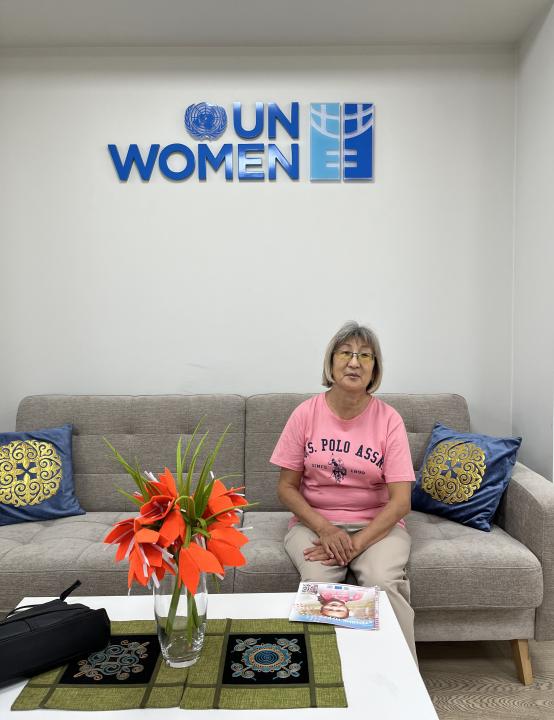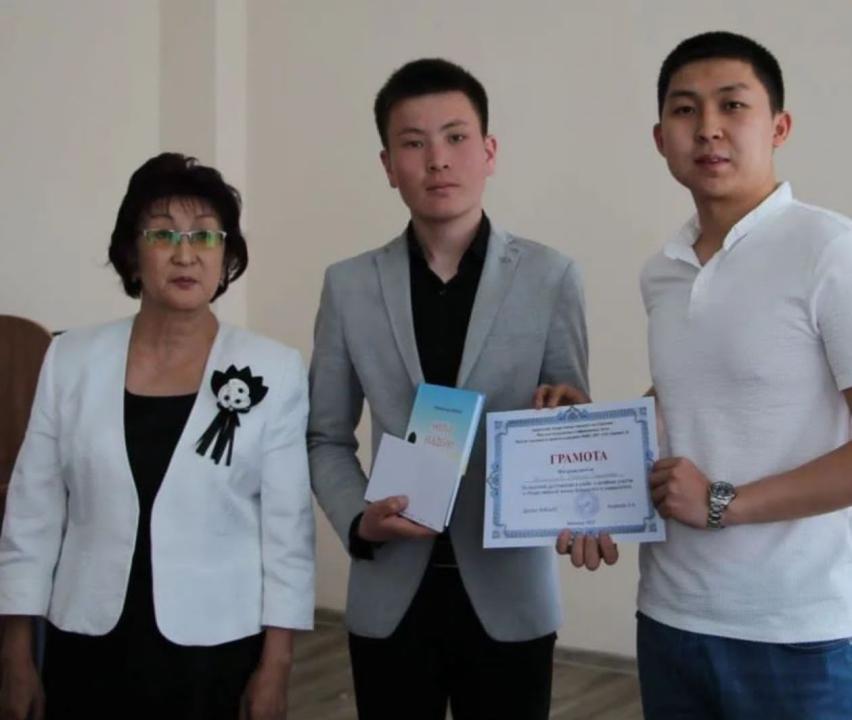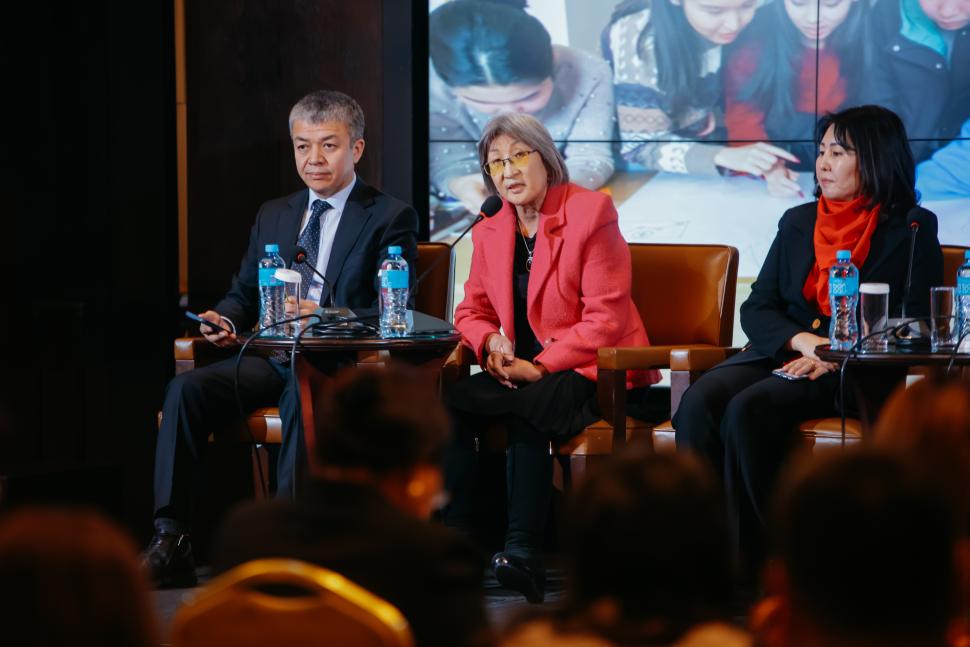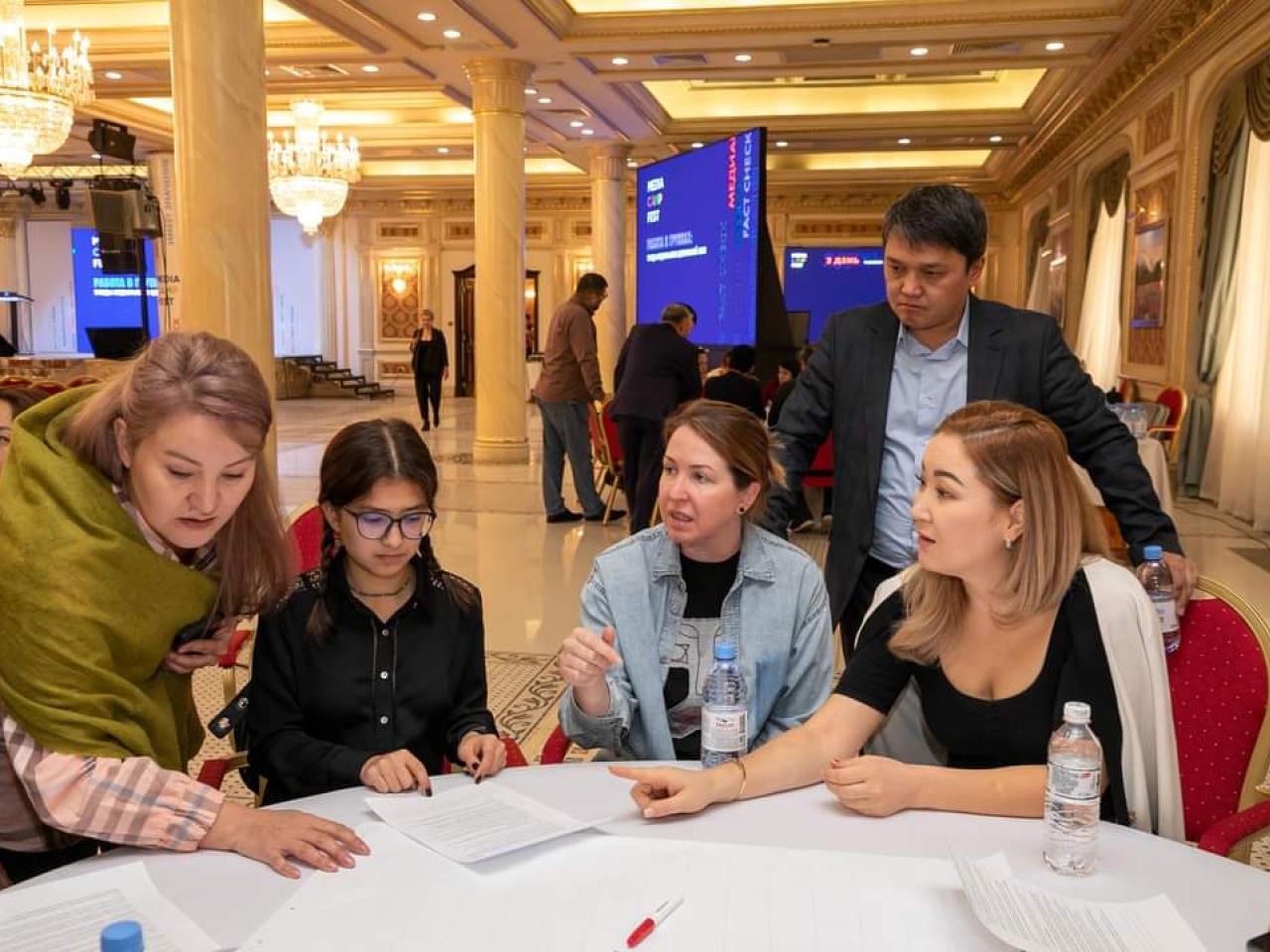Cultivating gender-sensitive journalism, a landmark initiative in Kyrgyzstan
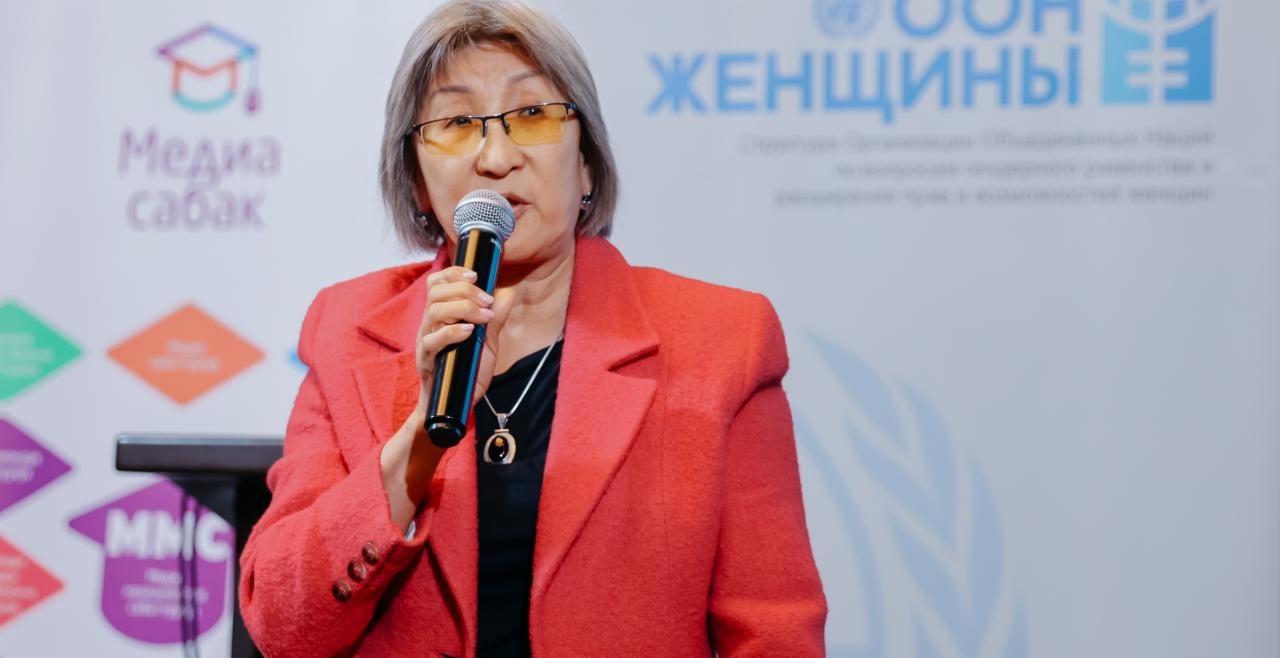
BISHKEK, Kyrgyzstan − Information shapes our understanding of the world, with journalists and the media playing a critical role in maintaining the status quo or driving change.
In Kyrgyzstan, a groundbreaking project under Spotlight Initiative, in partnership with UN Women and the Media Sabak Public Foundation, aims to transform journalism and media to tackle pressing gender issues and pave the way for a more equitable society.
The project is led by Journalism Faculty Dean and Professor Altyn Asanova, lecturers and practitioners who recognize the role of gender-sensitive journalism in shaping public perception.
Critical force for change
In Kyrgyzstan, almost 27 per cent of women report experiencing some form of violence in their lifetime, according to UN Women.
“Journalists have become a critical force for change in this context. They uncover, report and disseminate stories that highlight the persistence of gender inequality," says Professor Asanova.
"These stories, whether concerning sexual harassment, gender violence or other pressing issues, serve as a mirror reflecting the need for transformation."
Gender-sensitive journalism course
The Gender-Sensitive Journalism course for university students is a cornerstone of this initiative. The course equips future journalists with the tools and knowledge they need to address gender issues transparently in their professional lives. Covering eight topics over 16 hours of lectures and seven practical topics spanning 14 hours, the curriculum integrates gender-sensitive journalism as a fundamental aspect of journalism education.
One of the critical aspects of this course is its focus on practical skills. Students not only better understand gender issues in the media, but learn how to conduct media monitoring and apply other techniques in their work.
The curriculum pivots from the traditional, theory-heavy approach, emphasizing hands-on experience to ensure that future journalists can apply their knowledge in a real-world context.
Dismantling harmful gender norms
The training programme introduces tools and practices such as the Gender Action Learning System (GALS). GALS provides a framework for self-reflection and analysis, but also plays a crucial role in dismantling harmful gender norms by inviting participants to challenge their individual biases, behaviours and perceptions. These shifts align with broader educational reforms designed to equip students with a gender lens and practical skills to promote gender-sensitive journalism in the country.
The collaborative efforts of educators and professionals resulted in a comprehensive curriculum that adheres to the changing dynamics of journalism. Moreover, the flexibility of the curriculum allows it to adapt to the unique needs of different educational institutions.
“Since September 2023, the curriculum has been included in the academic programme of the Bishkek Humanitarian University, but the project's potential goes beyond a single institution. Discussions are underway to expand its reach to other universities, reaching future journalists, PR professionals and even librarians," says Professor Asanova. "This inclusive approach underscores the project's commitment to societal transformation through education.”
Promoting Gender Equality
The success of this course highlights the critical role journalism plays in societal transformation. It reminds us that journalism is not only about reporting the news but also about shaping narratives through gender-sensitive and non-violent language, addressing social issues, and promoting change to achieve gender equality.
By Gulaiym Shigaibaeva
Spotlight Initiative is the United Nations high-impact initiative to eliminate violence against women and girls. It was implemented in Kyrgyzstan from 2020 to 2023.

